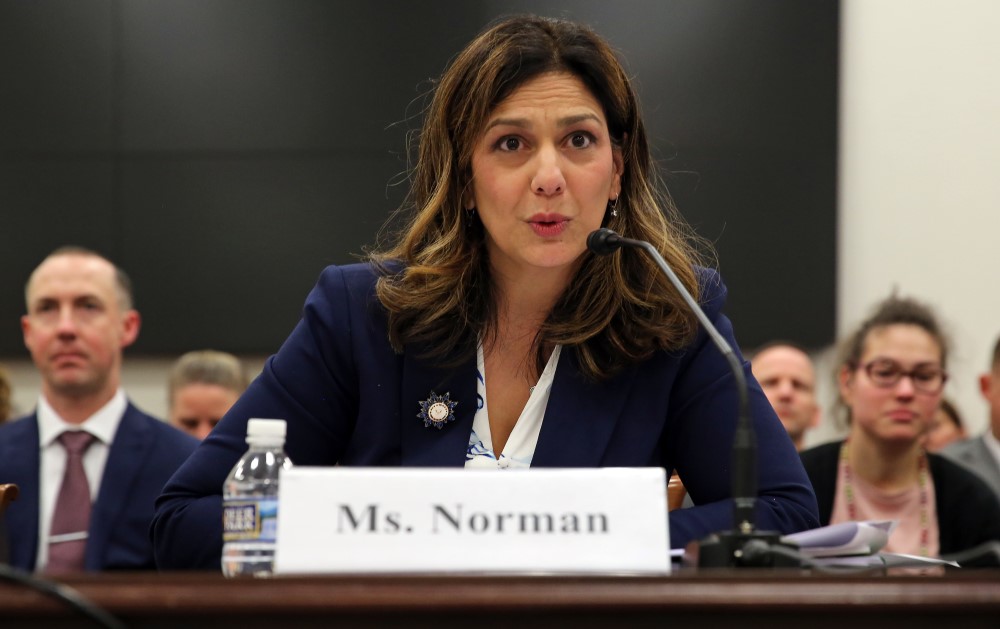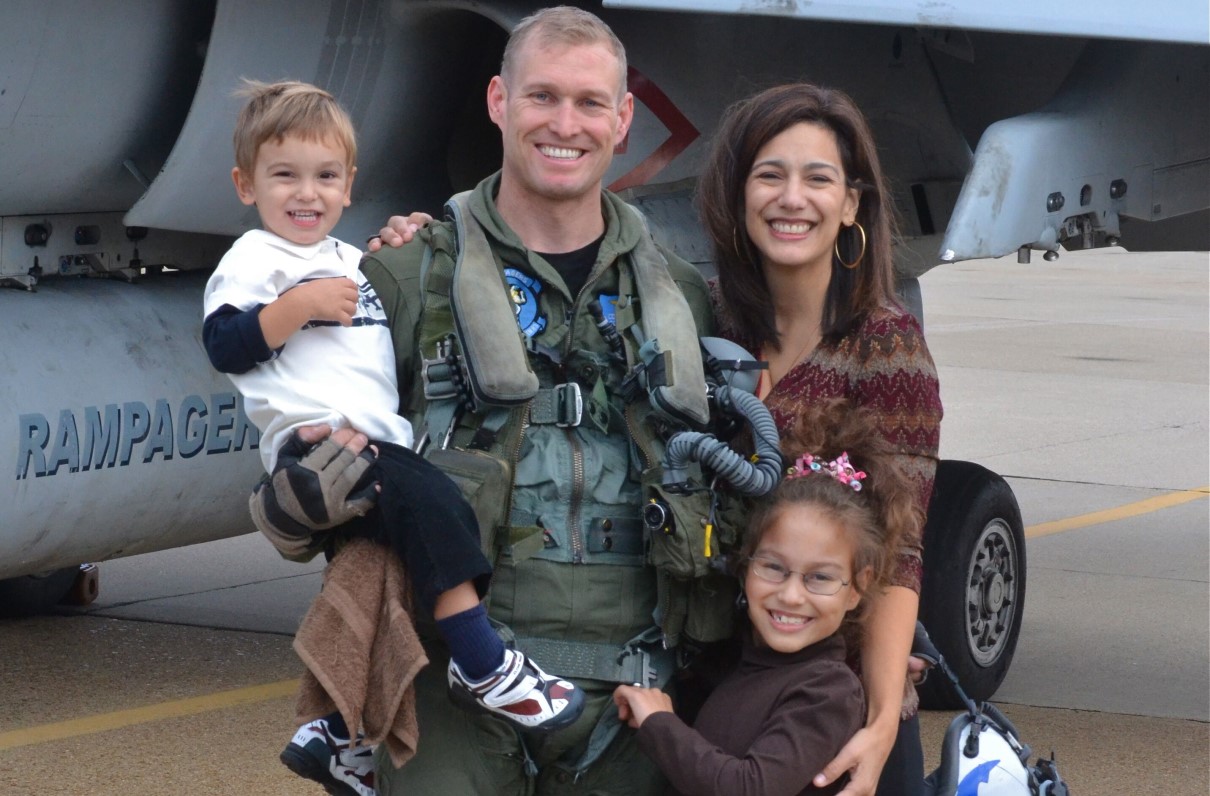By Michelle Norman
Our first introduction to MOAA was more than 16 years ago, when our daughter was born prematurely at 27 weeks. My husband Cassidy, a naval aviator, was a lieutenant commander at the time. He and I recently moved to Virginia Beach, Va., for a tour on a carrier air wing staff. We had just moved into the first home we ever owned when our first born entered the world unexpectedly, a blessing and a traumatic challenge that defined the rest of our lives.
Instead of spending precious moments with our new baby at home, we spent the next eight months in a neonatal intensive care unit at a children’s hospital. The unspeakable happened in her first week of life, a brain bleed that led to a series of life-altering diagnoses. I spent every waking moment at the hospital while Cass was in the middle of workups for an upcoming cruise.
Extended family and military spouses became a lifeline for us. Many visited the hospital to visit with me, pray, and hold Marisa. Others supported us through errands, meal trains, chores, and financial aid. It was an incredible outpouring of support from our military community that kept our spirits and faith strong.
One day, a senior Navy spouse visited me at the hospital. I was tired and really needed words of wisdom on how to navigate the way forward long-term. I will never forget her advice that day. Not knowing what our daughter’s future would hold, she strongly recommended that we sign up as soon as possible for MOAA’s Supplemental TRICARE Insurance, Mediplus. The supplemental insurance plan would help pay many of our medical bills. It would also provide additional protection for future hospital stays, doctor appointments, and prescription drugs.

Marisa Norman spent eight months in a neonatal intensive care unit. (Courtesy photo)
That was the best advice I received during those eight months. Our daughter finally came home, right before my husband departed on a six-month deployment. Our entire family was enrolled shortly after my daughter’s first birthday. Since then, Mediplus has been a life-saver through the years of appointments and therapies that followed. Mediplus gave us the flexibility to seek second opinions without being a financial burden. Knowing that the extra costs would be covered, we were able to afford the best ENT care for a critical airway reconstruction surgery in Cincinnati.
Through the years, we would receive Military Officer magazine and read about the efforts of MOAA on Capitol Hill for our military community. I was impressed with their mission and ability to make change via influence and legislation on many important issues including pay, medical care, and veteran and survivor benefits.
As our daughter grew, we realized that we needed to be advocates in every aspect of her life. In the last five years, we have had to fight for our daughter’s rights in special education. It has been a difficult journey that has led us to winning all of our legal battles: multiple state complaints, two due process hearings and an appeal adjudicated by the 4th Circuit Court. After hearing of our wins, other military families contacted us and shared their stories. We were not alone, but the voices of afflicted military families were silenced by reprisal from the public schools. Legislators were sympathetic but needed data before they could justify taking action on behalf of military families.
After working to get legislation in the 2020 National Defense Authorization Act to study military families and special education, we started to organize. I pulled together a grassroots campaign of four military spouses and we began to present our stories, from across the services, to a panel on special education at the Congressional Military Families Caucus Summit at Fort Benning, Ga., in October 2019.

Michelle Norman testifies at a House Armed Services subcommittee hearing on the Exceptional Family Member Program on Feb. 5 in Washington, D.C. Marisa Norman is seated behind her mother, at right. (Photo by Jennifer Milbrett/for MOAA)
We also collected stories from over 200 military families describing the obstacles they faced in securing their child a free and appropriate education. The results were heartbreaking, confirming that special education is an incredible challenge for our military families with very little support, resulting in family strife and negative impacts to military readiness.
Last week, I testified alongside MOAA at a House Armed Services Personnel Subcommittee hearing to share my story and the obstacles many military families in the Exceptional Family Member Program face from special education to healthcare needs. Our goal is to see legislation included in the FY 21 NDAA to require reporting on special education disputes and outcomes for military families to inform future policy and provide safeguards for these families.
[RELATED: What Is DoD Doing About Child Care?]
Never would I have imagined that 16 years after becoming a MOAA member that this very same organization would be our biggest advocate to finding legislative solutions for our family and many more like ours. MOAA’s Government Relations team has spent time listening to our story, researching potential solutions, and providing advice for a way forward. It truly has become a full circle for our family to see MOAA fighting on our behalf. We are proud of our decision we made to join MOAA and to see their expertise and advocacy first hand. They understand, they care, and they know how to push for positive change.
Thank you, MOAA, for your commitment to engage on policy with our legislators on all issues affecting our military community, especially the difficult ones. Marisa’s future, and the future of thousands of the most vulnerable children in military families, depend on it.
MOAA Knows Why You Serve
We understand the needs and concerns of military families – and we’re here to help you meet life’s challenges along the way. Join MOAA now and get the support you need. Use promo code FAMILY and save 10%.
Michelle Norman, the 2019 AFI Navy Spouse of the Year, lives in Virginia Beach, Va., with her daughter and son. Her husband, Cassidy, is deployed overseas as the commanding officer of USS Mount Whitney (LCC-20).


